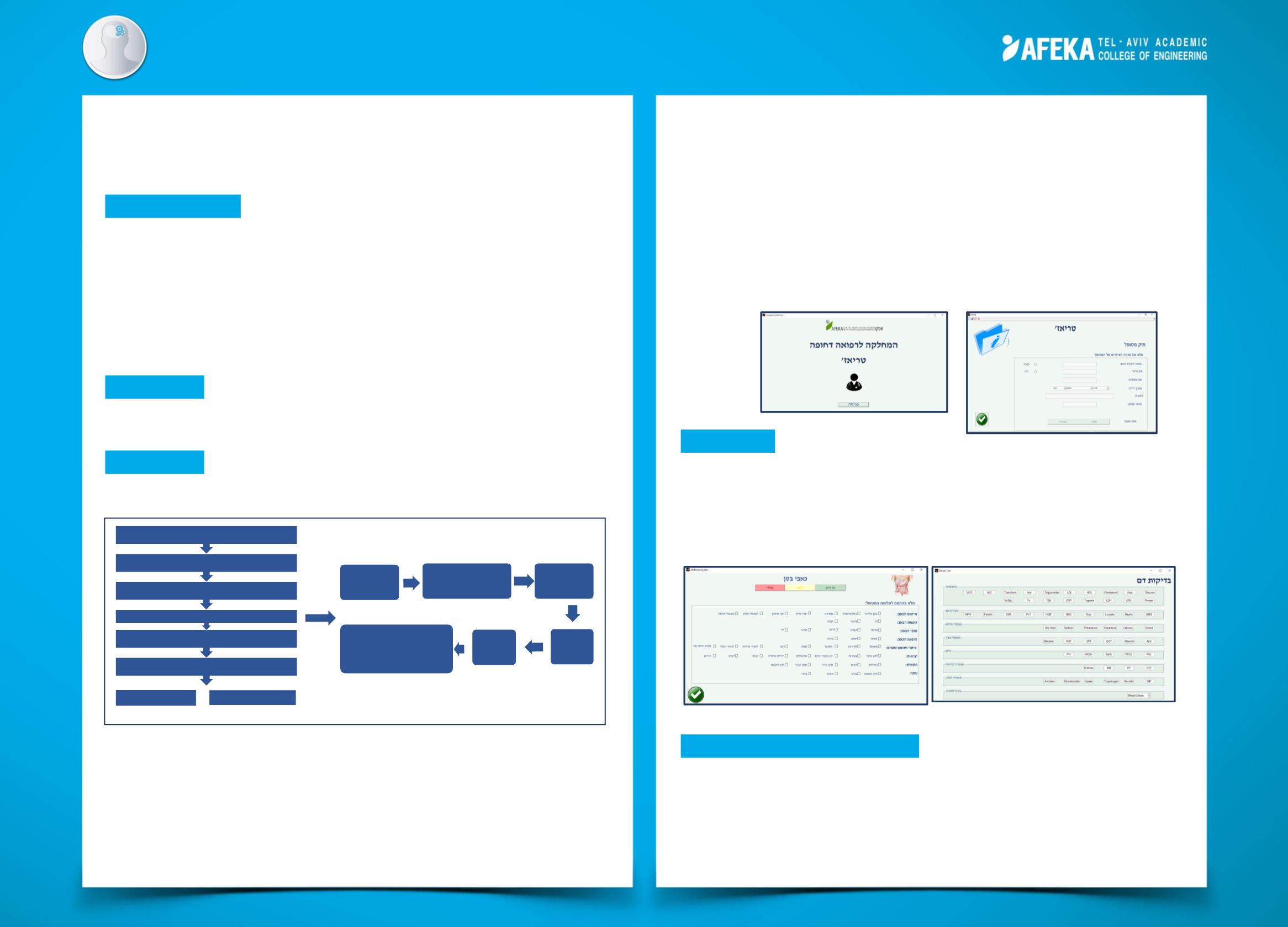

Decision Support System for the
Emergency Departments
Evelina Isakov
Advisor: Dr. Anat Ratnovsky
Medical Engineering
To develop a decision support system for ED’s physicians at the triage
stage.
1. Introduction
2.
Objective
3.1. Flow chart of ED triage stage
Emergency Department (ED) crowding and long length of stay are a
common worldwide problem
Israel’s EDs treat on average 3 million patients per year and the number
increases every year in a rate of 2.3%.
A decision support system at the triage stage offers a solution to the
EDs in Israel by enable fast initial diagnosis and treatment of various
pathologies
4. Results
5. Summary and Conclusion
The design decision support system capable of making diagnosis and
to give suggestion for treatment options for 29 diseases. The diagnosis
is done based on the developed database and the integration of the
questionnaire and the lab and radiology tests results.
3.
Method
3.2. Work process
Examine the work procedure at the EDs and the common cases
Study the symptoms, medical tests and treatment of about 30 diseases.
3.3. Algorithm
A database that includes: list of symptoms for different diseases, list of
relevant laboratory test, radiology tests and treatment options was built
in MySQL.
A graphical user interface (GUI) for the decision support system was
built using Matlab software.
An algorithm that interact between the database and the GUI, the
symptoms and the relevant lab or radiology tests and that classified the
relevant diseases according to the symptoms and tests results was
written.
Figure 1. The flow chart of Tel Aviv Sourasky Medical Center
Inpatient
Discharge
Continuation of treatment by a nurse
Examination by a physicians
Pass to the treatment area
Nurse triage
Opening a new sheet at the secretariat
Arriving to ED
Admissions Office
Patient Identification
Initial Testing
Urgency
Vital Signs
A reference to the relevant
departments and providing primary
care - analgesics and bandaging
The decision support system focus on 4 main complaints: abdominal
pain, headache, chest pain and breathing difficulty.
The decision support system integrate between the initial examination,
medical questionnaire and the lab and radiology tests results for the
final diagnosis and treatment options.
Figure 2. Entry screen
Figure 3. Personal details
Figure 4. An example for symptoms questionnaire Figure 5. An example for lab test results
screen
















